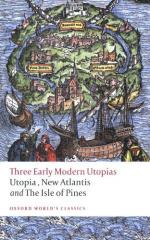|
This section contains 7,964 words (approx. 27 pages at 300 words per page) |

|
Francis Bacon, Baron Veralum, Viscount St. Albans, gained renown both as an English statesman and a natural philosopher. Bacon was instrumental in the replacement of Aristotelian natural philosophy, effecting a major shift to thinking about the natural world in exclusively empirical and experimental terms, although he remained entrenched in Aristotelian thought to a significant degree. His achievement was twofold: First, he transformed the discipline of philosophy from something contemplative that focused above all on moral questions into something practical that focused centrally on questions in natural philosophy (what is now called science). Second, his work in the natural sciences resulted in the formulation of precepts that are now regarded as foundation stones of the inductive modern scientific method: moving inferentially from observable effects to deeper underlying causes and eliminating various possible explanations by testing their consequences against experiment or observation.
Life
Bacon was born...
|
This section contains 7,964 words (approx. 27 pages at 300 words per page) |

|


